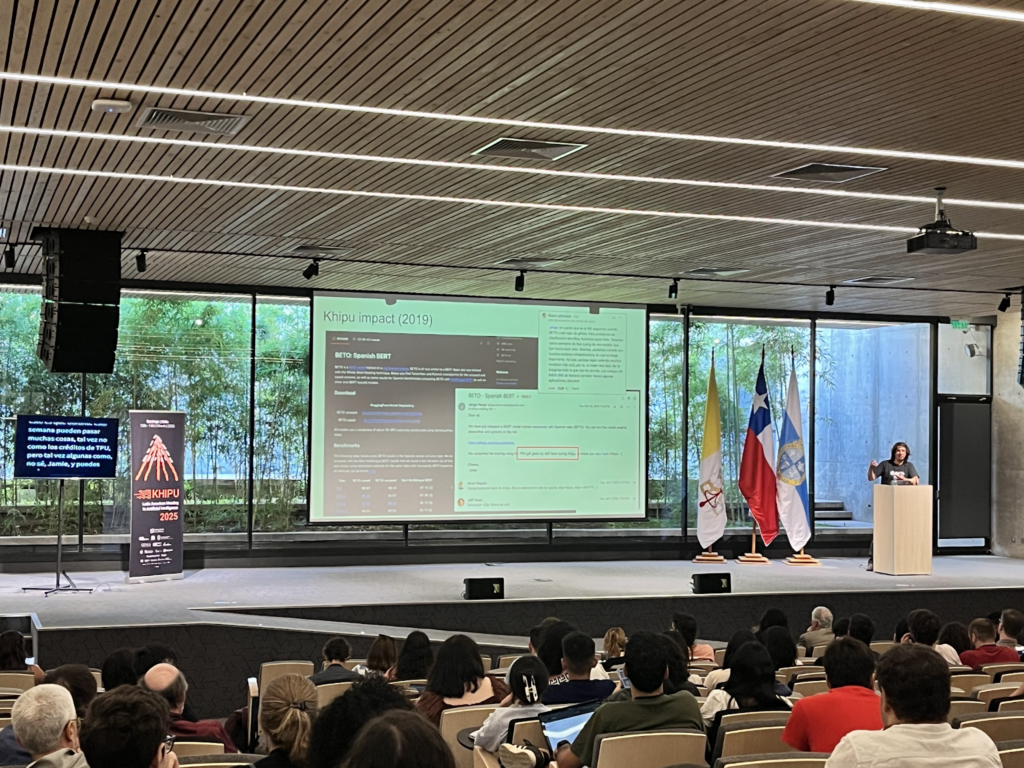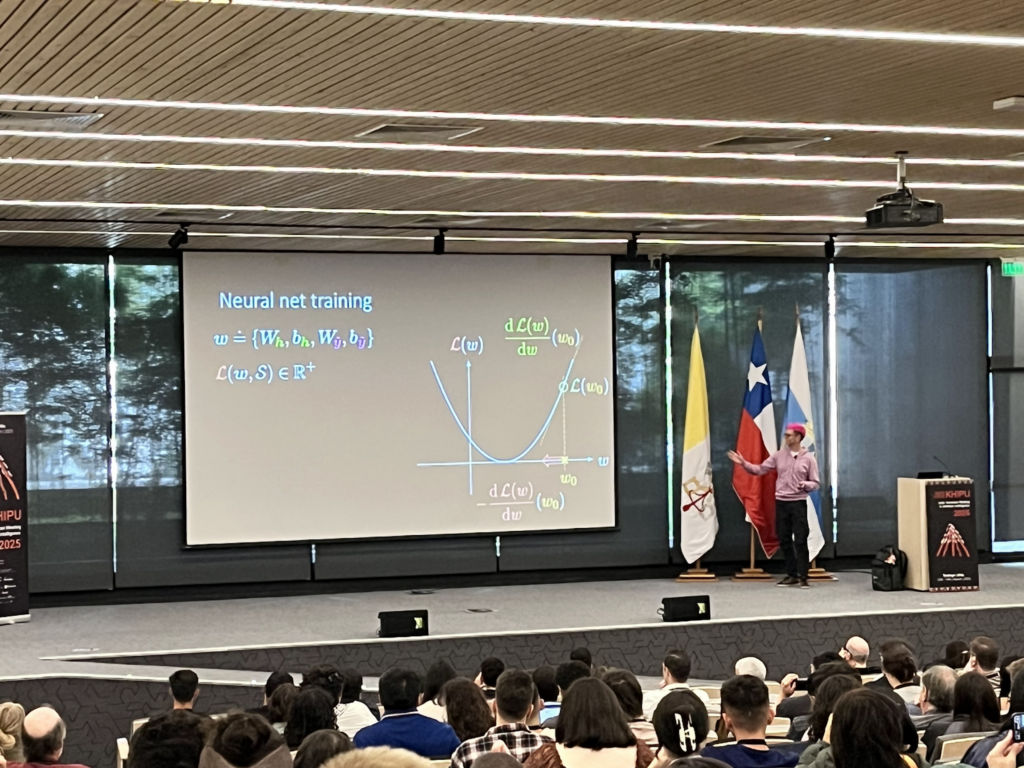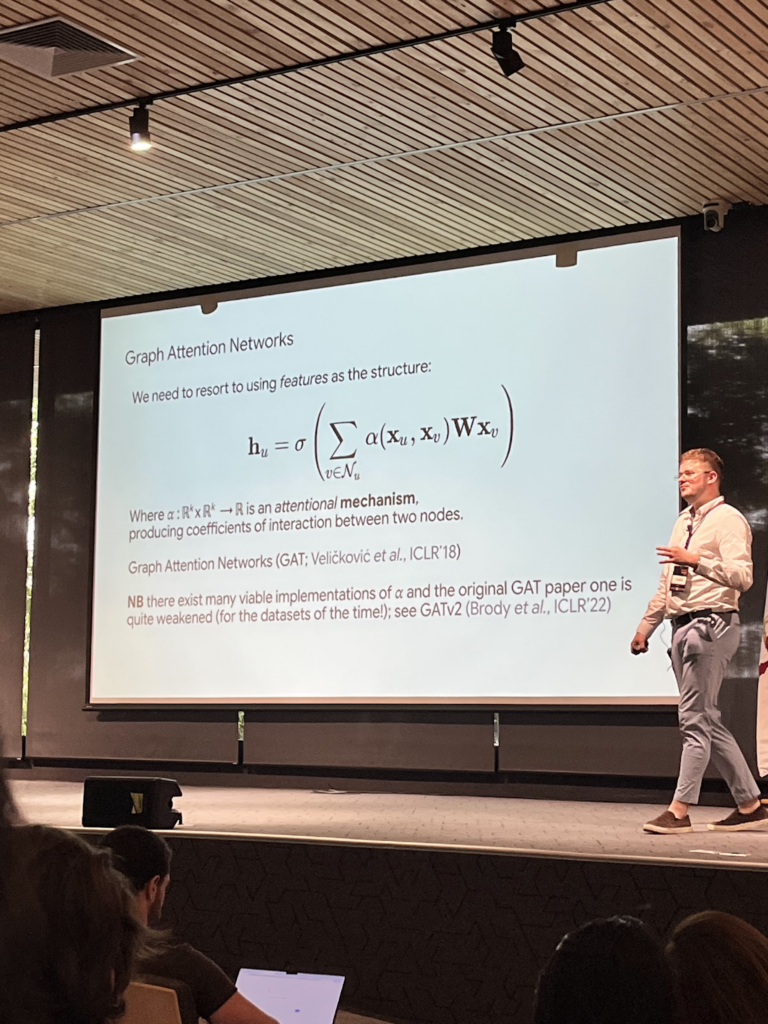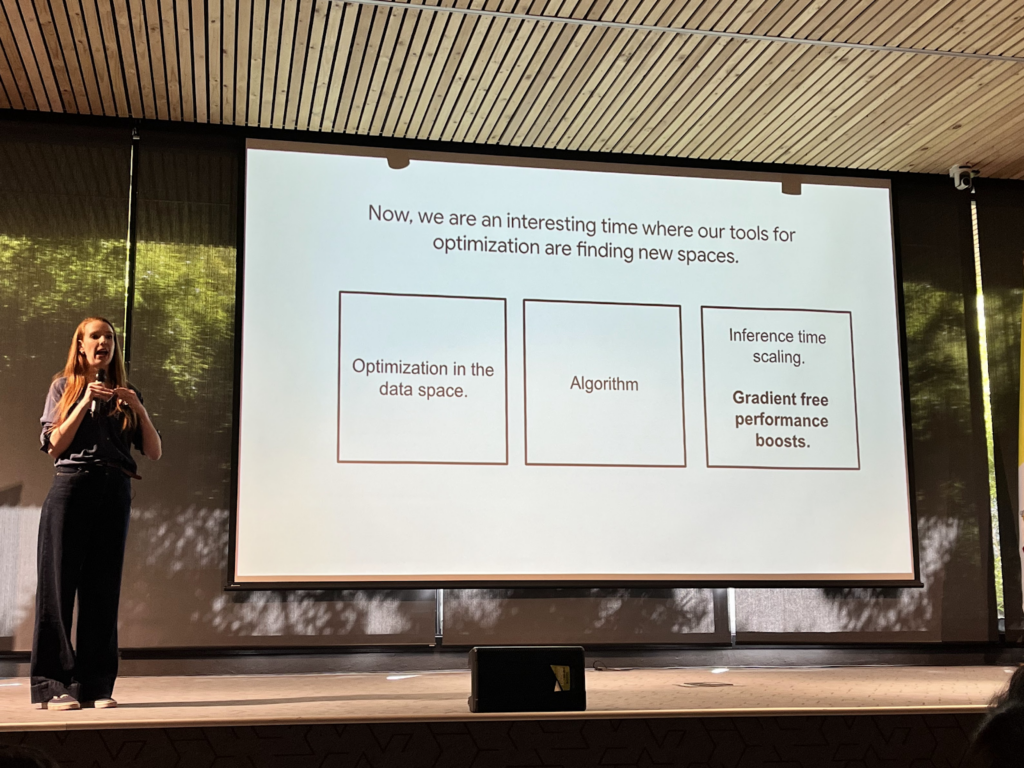In March, we at Arionkoder were privileged to attend and sponsor Khipu 2025, Latin America’s premier gathering for the AI community. It was an inspiring week filled with learning and insightful conversations. This article shares our perspective on what made this Khipu edition so special—from the deep technical insights of the lectures and tutorials to broader reflections on AI’s future in the region.
A highlight of Khipu 2025 was the exceptional quality of the first three days, dedicated to lectures and tutorials. These sessions spanned diverse AI domains, with expert-led presentations that provided both theoretical grounding and demonstrations of real-world applications. In this article we’re gonna bring our own summary of what we’ve loved the most about this keynotes, with links that will help you revisit the lectures.
The opening lecture by Jorge Pérez (from cero.ai, Chile) offered a concise yet comprehensive review of machine learning (ML) and deep learning (DL) fundamentals. Pérez began with a historical overview of AI, then quickly transitioned to the latest advancements in deep learning. He adeptly dissected topics such as transformers, attention mechanisms, and deep neural networks in general, delivering an engaging and well-structured overview.

Following this, Alfredo Canziani (NYU, USA) delivered a dynamic and enthusiastic session on supervised learning with artificial neural networks. For those unfamiliar with him, Alfredo is often compared to Andrew Ng for this generation (those who took Andrew’s courses online will get what I’m saying ;-)): he shares his NYU classes on YouTube, and his lectures on energy-based models are both compelling and accessible, particularly for engineers. Beyond a solid introduction to ML, Canziani engaged in a Q&A session, offering valuable tips on teaching and making AI knowledge more accessible.

Another compelling lecture came from Isabelle Augenstein (University of Copenhagen), who discussed Natural Language Processing (NLP). She traced the evolution of NLP, the rise of large language models (LLMs), and the key challenges the field faces today. Her emphasis on responsible AI development and her practical recommendations for researchers resonated strongly with the audience (and with us at Arionkoder!).
Another highlight was Leo Sampaio (University of São Paulo), who delivered a visually rich and informative talk on Computer Vision. Her lecture is, in my opinion, essential viewing for anyone interested in entering the field. Sampaio took a historical approach, highlighting the cyclical nature of AI advancements. By drawing parallels between early methods like Bag of Visual Words and modern self-supervised learning, she illustrated the cross-pollination of ideas within AI—noting how, just as NLP once drew from computer vision, we now see the reverse.Petar Veličković and Ira Ktena, both from Google DeepMind, also gave very interesting lectures. Veličković introduced graph neural networks, highlighting their diverse applications in areas like traffic prediction, biomedical research, weather forecasting, and even football training! Ktena introduced the audience to diffusion models, the core technology behind image generation models such as Stable Diffusion and Midjourney.

Sara Hooker’s keynote provided a thought-provoking moment, as she discussed “the slow death of scaling” and the future of AI. Appointed by Time magazine as one of the 100 most influential people in AI in 2024, Hooker, VP of Research at Cohere for AI, questioned the prevailing belief that larger models always equate to better performance. She argued that we are approaching diminishing returns in this direction. Instead, she advocated for new research directions beyond simply scaling up, emphasizing the need for efficiency, interpretability, and alignment. This message resonated deeply with us, aligning with our conviction that the future of AI lies not only in larger models but in developing smarter, more responsible, and truly useful solutions for real-world problems.

And, of course, a little self-promotion is in order! I also had the opportunity to lecture on leveraging LLMs to create immediate industry value. I shared Arionkoder’s approach and how we help companies improve their processes, reduce costs, and maximize their impact with AI. If you’re interested in learning more, the lecture video is available, and I’ll be publishing a post about it soon.
Khipu 2025 underscored the vibrant state of AI research and development in Latin America, and its growing global influence. The conference not only showcased cutting-edge advancements but also fostered a crucial dialogue about the responsible and impactful application of AI. We left Khipu 2025 energized and optimistic about the future of AI, and the role Latin America will play in shaping it. As Arionkoder, we are committed to driving this progress by helping businesses harness the power of AI to solve their most pressing challenges and achieve their strategic goals, with the best talent from this continent.
